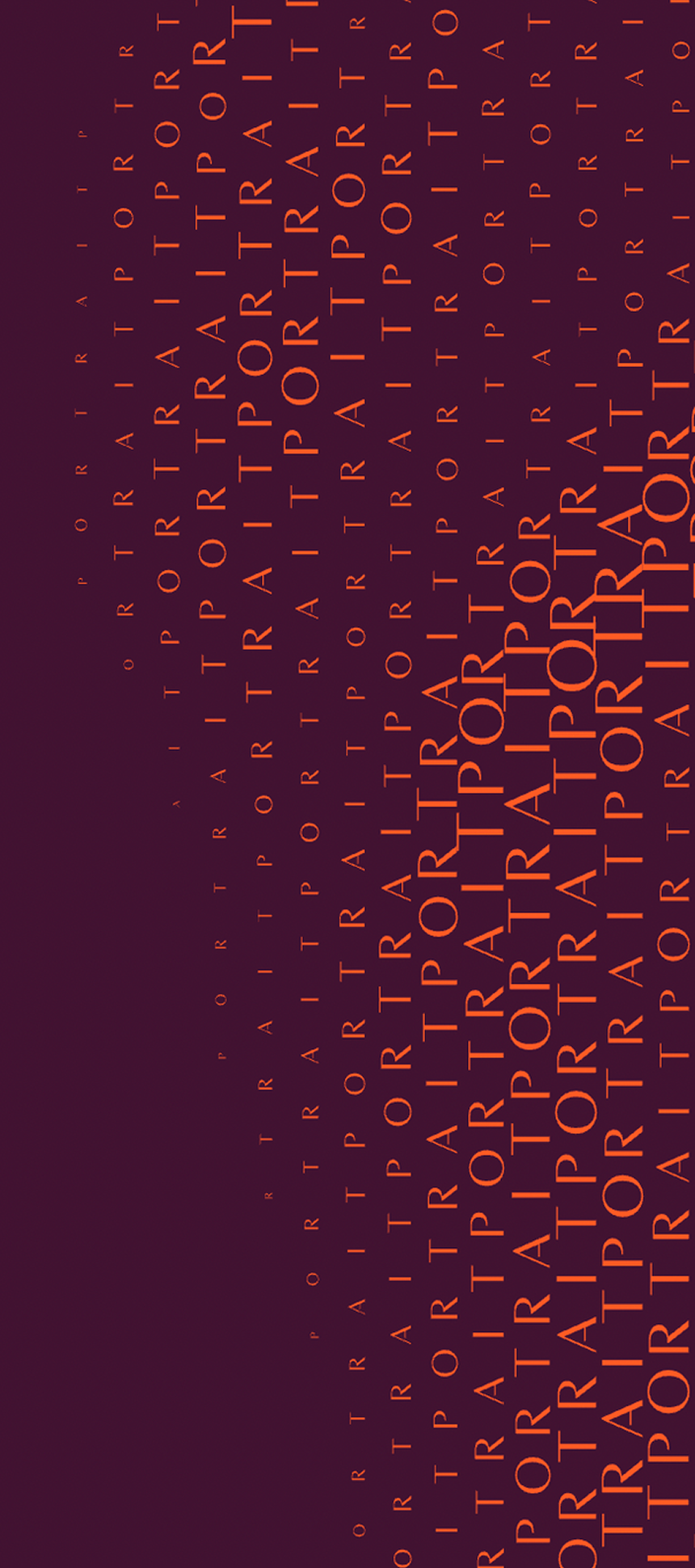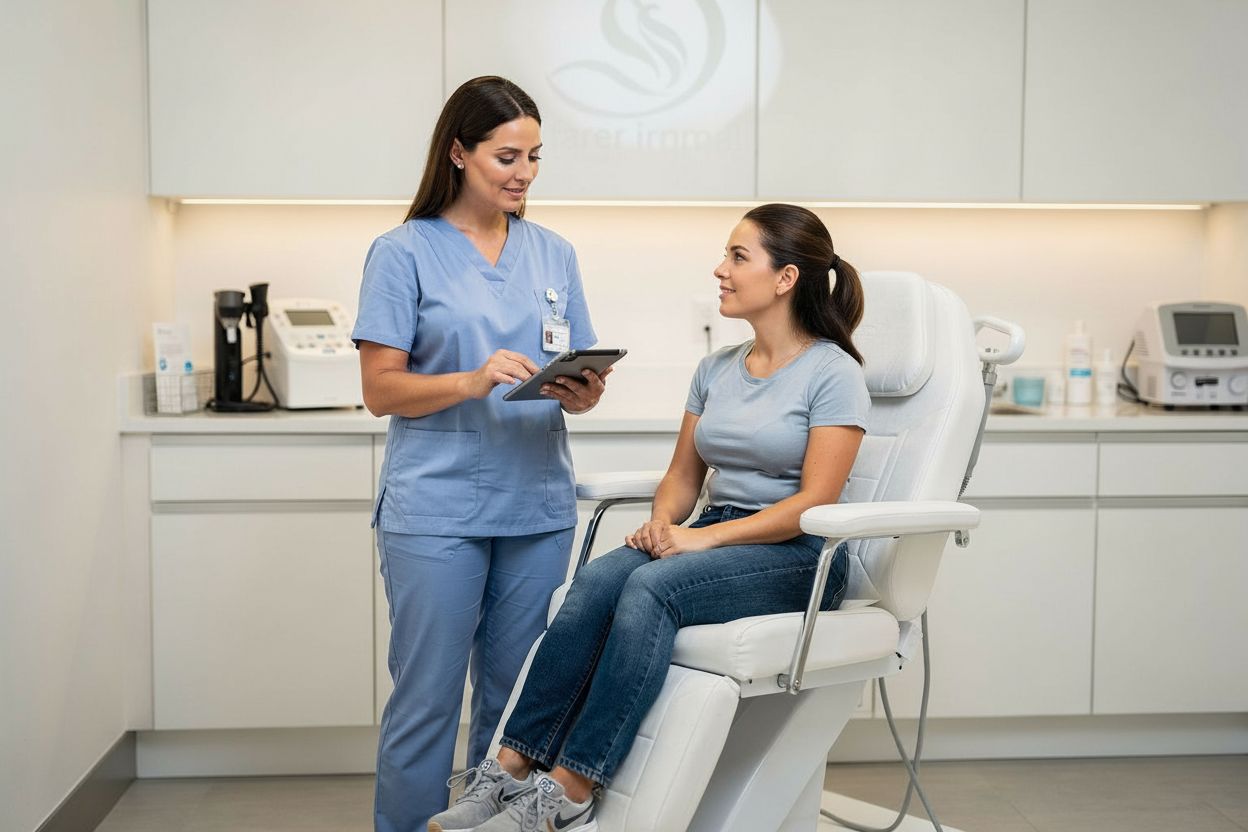The Complete Guide to Med Spa Certifications (2026)
.png)
Empowering Professionals at Every Stage
Portrait offers strategic expertise to help you make informed decisions and achieve long-term success.
Book Intro CallThe medical aesthetics industry is booming. The laser hair removal industry alone is valued at $1.13 billion, and that's just one service vertical. If you're considering a career in medical spas—whether as a technician, nurse, or physician—you're entering one of the fastest-growing sectors in healthcare and wellness.
But here's the reality: not all certifications are created equal. In the medical aesthetics space, there are multiple types of certification to consider, and determining which are meaningful and which should be looked at with some trepidation is a dilemma for both consumers and medical spa operators.
The earning potential is real. As of August 2025, the average annual salary for a Medical Esthetician in the United States is around $59,825, with an hourly rate of $29. But to command these wages and advance your career, you need the proper credentials.
This comprehensive guide walks you through every primary med spa certification available in the U.S., breaks down what makes each one valuable (and what doesn't), reveals accurate pricing, and recommends the best institutions where you can earn your credentials.
Let's dive into your golden ticket.
What is a Med Spa Certification?
Before we explore specific certifications, it's critical to understand an important distinction:
Certification ≠ License
A common misconception is that a certification of completion is the only credential needed to perform aesthetic services. However, a certification alone does not constitute a legal document that permits the rendering of paid services to clients. Proper licensure, in compliance with state and national regulations, is necessary to provide aesthetic treatments legally.
This means that while the certifications in this guide enhance your credentials and marketability, you'll still need appropriate state licensing to perform services legally. Check your state's specific requirements before pursuing any certification.
1. NCEA Certified Credential (National Esthetician Certification)
The NCEA Certified credential's competency-based exam evaluates the Esthetician's skills and knowledge at a 1200-hour level. This is the gold standard among esthetician certifications in the United States.
Strengths
- Nationally Recognized – The NCEA Certified Credential represents the highest skin care credential available in the United States and requires adherence to the profession's code of ethics.
- Portability – The NCEA created an affordable pathway for endorsement and reciprocity so you can move to another state with higher hours and get a license or Advanced/Master Esthetician License.
- Career Advancement – Advanced study sections cover medical esthetics, laser and light therapies, and oncology esthetics, preparing you for specialized med spa roles.
Weaknesses
- Experience Requirements – Candidates require a minimum of 1200 hours of work experience in the field of esthetics. This typically means you must already have state licensure and practice experience.
- Study Time – Depending on your study habits and available time, this entire program can be completed in as little as 4-6 weeks, but most practitioners take 8-12 weeks.
- Maintenance Required – All NCEA-certified professionals must complete 12 Continuing Education units for recertification every 3 years from the date of issue of their credential.
Pricing
NCEA membership pricing for certification includes two payment options: Individual Member Price of $675 (3 payments of $225 billed over 3 months) or NON-Member Price of $900 (3 payments of $300 billed over 3 months).
2. Botox & Dermal Filler Certification (Injectable Certification)
Injectable certifications train medical professionals to safely administer neurotoxins (such as Botox) and dermal fillers. These are among the most profitable services in medical spas.
Strengths
- High Revenue Potential – Injectables command premium pricing and require minimal time investment per client.
- Comprehensive Training – At the American Association of Aesthetic Medicine and Surgery (AAAMS), courses are designed specifically for practicing doctors, nurses, physician assistants, and dentists, with instruction on completing injections in and around the forehead, eyebrows, cheeks, lips, chin, jawline and more.
- Quick Completion – Most practitioners find it takes about four hours to complete the course online.
Weaknesses
- Limited to Medical Professionals – Only MDs, DOs, NPs, PAs, RNs, and some other licensed practitioners can take injectable courses. Estheticians without medical licensing cannot legally administer injectables in most states.
- Requires Hands-On Training – While online components exist, most programs require in-person practical training with supervised injections.
- Ongoing Education – Techniques and products evolve; staying current requires continued education and practice.
Pricing
The AAAMS Botox certification costs $650 and includes 6.5 CE/CME credits. Other programs vary; AAFE's Medspa Business Training and certification packages range from $597 to $797.
Recommended Institutions
- American Association of Aesthetic Medicine and Surgery (AAAMS) – Online Botox certification with physician-led instruction. Available nationwide with membership and networking through the AAAMS Aesthetic Social Network.
- The Medspalogy Institute (Norwood, MA) – Offers introductory and advanced neurotoxin certifications with hands-on training from experienced injectors. Led by industry innovator Matt Azulay-LaFever, specializing in aesthetic nurse training and best practices.
- American Academy of Facial Esthetics (AAFE) – Comprehensive injectable courses with real-world business training included. Faculty includes professionals who have built and run successful injectable practices and medspas.
3. Laser Hair Removal Certification
Laser certifications train professionals to safely operate cosmetic laser systems for hair removal, skin rejuvenation, and other light-based treatments. This is one of the most accessible advanced certifications for estheticians.
Strengths
- Accessible to Estheticians – In most states, laser hair removal does not fall within the scope of practice of a conventional esthetician's license, except a few states—Washington, Virginia, and Utah—which allow master estheticians to perform the service since laser therapy training is integrated into advanced courses required for this level of licensure.
- Growing Market – Over 1 million laser hair removal treatments were performed in the United States last year, reflecting consistent demand.
- Lucrative Service – Laser hair removal sessions vary depending on size: small areas run $80-$100, medium areas $150-$215, and extra-large areas $325-$400.
Weaknesses
- State-Dependent Regulations – State standards detailing the requirements for performing laser hair removal are anything but consistent. This means you must turn to your state regulatory agency to get the scoop on what steps you must take before you can begin offering laser hair removal services.
- Extended Training – Among those states that require formal training, two weeks of combined classroom study and hands-on training at an accredited facility is the industry standard.
- Equipment Investment – To practice post-certification, you'll need access to laser equipment, which represents a significant capital investment.
Pricing
Pricing varies widely by institution. The National Laser Centers' 3-day certification course costs $895 and includes access to the online laser course and certification exams at no additional charge. Other programs range from $500 to $2,000, depending on duration and hands-on components.
Recommended Institutions
- National Laser Institute (Phoenix, AZ & Dallas, TX locations) – Pioneer in laser training with over a decade of experience. Offers comprehensive 40-hour programs with hands-on training in medical spa settings. Provides scholarship and financial assistance options, including military and military spouse grants.
- Lase Academy (New York-based, expanding) – NYS Laser Technician Certification with flexible payment plans as low as $166/month. Emphasizes clinical training and safety protocols, including OSHA and ANSI Z136.1 Laser Safety Officer standards. Offers private classes and customized learning experiences.
- MedSpa Institute of America (Minneapolis, MN & Iowa locations) – State-licensed laser certification programs with three tiers of training. Founded by the creator of Minnesota's laser license. Offers multiple payment plan options through Affirm, PayPal, or individualized arrangements.
4. Medical Esthetician Certification
Medical Esthetician Certifications are specialized programs designed for those seeking advanced knowledge in medical aesthetics in clinical settings such as dermatology offices, plastic surgery clinics, and medical spas.
Strengths
- Clinical Focus – This certification focuses on comprehensive skincare, advanced facial treatments, and pre- and post-operative skin care. It also covers the use of medical-grade equipment and products, equipping graduates with skills to work alongside healthcare professionals in medical spas, dermatology offices, and plastic surgery clinics.
- Career Readiness – Graduates are prepared to work immediately in clinical settings with physicians and advanced practitioners.
- Comprehensive Curriculum – Covers both aesthetic and therapeutic aspects of skin care in medical settings.
Weaknesses
- Limited State Recognition – Many states don't formally recognize "Medical Esthetician" as a distinct license, limiting portability.
- Prerequisites – Most programs require you to hold an active esthetician or cosmetology license already.
- Program Variability – Quality and curriculum vary significantly between institutions.
Pricing
Programs typically include a non-refundable enrollment fee of $500 to secure your enrollment, with total program tuition varying by institution. The Aesthetic Institute notes there are no hidden costs. Overall costs range from $2,500 to $6,000.
Recommended Institutions
- The Medspalogy Institute (Norwood, MA) – Accredited aesthetic training with CNE (Continuing Nursing Education) credits available. Specializes in training physicians, PAs, nurses, and dentists with laser operator certification. Offers introductory and advanced training in neurotoxins, fillers, lasers, and lip fillers.
- New Age Spa Institute (Des Plaines, IL) – 120-hour Master Clinical Aesthetics program developed with top plastic surgeons and dermatologists. Offers financing options with transparent, no-surprise pricing. Written and practical exams administered before certifications are given.
- Rise Aesthetic Institute (Denver, CO) – Offers NCEA Certification support and Master Esthetician training with emphasis on real-world business concepts and marketing strategies. Supports licensed estheticians pursuing advanced credentials—$ 100 non-refundable registration fee with payment arrangements available.
5. Laser Safety Officer Certification
A specialized credential for professionals who oversee laser operations, manage safety protocols, and ensure compliance with ANSI safety standards in medical spas and clinics. It is offered by the Board of Laser Safety (BLS).
Strengths
- Regulatory Recognition – Certificates should be from courses in cosmetic laser services, equipment safety and operation, procedures, and related skin modalities, taught directly by a licensed physician or an ACCME-certified continuing medical education educator.
- Compliance Critical – In many states, facilities using lasers are required to have a certified Laser Safety Officer on staff.
- Leadership Opportunity – Opens doors to management and oversight roles within med spa organizations.
Weaknesses
- Niche Credential – Not ideal if you want to perform treatments; this is for supervisory and safety roles.
- Technical Focus – Requires detailed knowledge of laser physics, ANSI standards, and regulatory requirements.
- Renewal Requirements – Ongoing education and recertification are needed to maintain currency.
Pricing
Laser Safety Officer certifications typically cost $400-$1,200, depending on the program's depth and hands-on components.
Comparing Med Spa Certifications
State-Specific Requirements: The Reality Check
Before committing to any certification, understand that your state's regulations matter most.
Most states require medical spas to have a licensed physician, such as an M.D. (Doctor of Medicine) or D.O. (Doctor of Osteopathic Medicine), serving as the medical director and overseeing all medical treatments to ensure they are performed in accordance with healthcare laws and safety standards.
Additionally, all professionals at your medspa, including aestheticians, nurses, and other specialists, must hold the appropriate licenses and certifications for the services they provide. For instance, nurses require a state license after passing the National Council Licensure Examination for Registered Nurses. In contrast, aestheticians require certification from accredited bodies such as the National Coalition of Estheticians, Manufacturers/Distributors & Associations (NCEA).
Some states are more restrictive than others. States that allow non-physicians to own medspas include Arizona, Alaska, Delaware, Florida, Iowa, Louisiana, Maine, Michigan, Mississippi, New Hampshire, New Mexico, Oklahoma, South Carolina, Utah, Vermont, and Virginia.
Research your state's Board of Cosmetology and Department of Health websites before enrolling in any certification program. For more on state-by-state med spa regulations:
- Alabama
- Alaska
- Arizona
- Arkansas
- California
- Colorado
- Connecticut
- Delaware
- Florida
- Georgia
- Hawaii
- Idaho
- Illinois
- Indiana
- Iowa
- Kansas
- Kentucky
- Louisiana
- Maine
- Maryland
- Massachusetts
- Michigan
- Minnesota
- Mississippi
- Missouri
- Montana
- Nebraska
- Nevada
- New Hampshire
- New Jersey
- New Mexico
- New York
- North Carolina
- North Dakota
- Ohio
- Oklahoma
- Oregon
- Pennsylvania
- Rhode Island
- South Carolina
- South Dakota
- Tennessee
- Texas
- Utah
- Vermont
- Virginia
- Washington
- West Virginia
- Wisconsin
- Wyoming
Training Options: Online vs. In-Person
Online Training
- Pros: Flexible scheduling, lower cost, learn at your own pace
- Cons: Less hands-on practice, may not meet state requirements for some procedures
- Best for: Theoretical knowledge and self-paced learners
In-Person Training
- Pros: Hands-on practice with equipment and clients, immediate feedback, state compliance
- Cons: Higher cost, inflexible schedules, geographic limitations
- Best for: Laser certifications, injectable training, and anyone entering clinical practice
Blended Programs
Many top institutions now offer hybrid models combining online theory with in-person practicum. This approach provides the best of both worlds.
Hidden Certification Expenses You Should Know
What is the cost of compliance? Medical spas need a license to operate, which can cost $100-$400, including processing fees. Certifications can cost around $700 altogether. Additionally, a Certificate of Occupancy usually costs at least $250, but can vary by state.
Beyond the certification itself, budget for:
- State Licensing Exams ($50-$300 per exam)
- Continuing Education Credits ($100-$500 annually)
- Professional Liability Insurance ($500-$2,000+ per year)
- Membership Fees (NCEA, professional associations: $100-$300 annually)
- Equipment Access or Purchase (if practicing as a technician)
Don't let these costs surprise you. Factor them into your career planning.
How to Choose the Right Certification for You
Ask yourself these questions:
- What's your current credential?
- Esthetician? → Pursue NCEA Certified or Laser certifications.
- Registered Nurse or NP? → Injectable certifications unlock high-earning opportunities
- Medical professional (MD/DO)? → Advanced injectable and med spa management training
- What's your career goal?
- Treatment provider? → Laser, injectables, medical esthetics
- Facility management? → Master Esthetician, NCEA Certified, Laser Safety Officer
- Business owner? → Combination of certifications + med spa business training
- What's your state's requirement?
- Contact your state's Board of Cosmetology or licensing agency
- Review their list of approved certifications
- Confirm reciprocity rules if you plan to relocate
- What's your financial situation?
- Quick ROI needed? → Laser or injectable certifications offer the fastest return
- Long-term investment? → NCEA Certified builds lifetime credibility
- Tight budget? → Research scholarship or payment plan options
Real-World Medical Spa Professional Salary
Certification directly impacts earning potential. Here's what the data shows:
Entry-Level Medical Esthetician: Medical estheticians earn between $32,000 and $52,000 per year, with variables including the type of business, skill level, location, and whether working part-time or full-time.
Experienced Medical Esthetician: The average annual salary for a Medical Esthetician is around $59,825, with an hourly rate of $29.
Top Tier (Certified Specialists): Top earners have reported making up to $160,969, with the typical pay range in the United States between $72,316 (25th percentile) and $125,949 (75th percentile) annually.
The difference? Certifications, specialization, and geographic location. A certified laser specialist in California commands vastly different compensation than an entry-level esthetician in a rural area.
Before Enrolling in a Med Spa Certification Program
A certification is an investment; ask yourself the right questions:
- Is the certification state-approved? Verify with your state's regulatory board.
- Does the institution offer job placement assistance? This can accelerate your entry into the field.
- What's the hands-on training component? How many client hours will you complete?
- Are financing options available? Payment plans can ease the financial burden.
- What's the instructor-to-student ratio? Smaller classes = better learning outcomes.
- Does the program provide continuing education credits? This helps with future recertification.
- What's the pass rate on certification exams? High pass rates indicate effective instruction.
Your Certification Roadmap
The medical spa industry is booming, and qualified professionals are in high demand. The right certification can transform your career—increasing your earning potential, expanding your scope of practice, and opening doors to positions you couldn't previously access.
Here's a practical roadmap:
If you're an Esthetician:
- Start with basic state licensure
- Pursue either Laser Hair Removal OR Medical Esthetician certification (market-dependent)
- Follow up with NCEA Certified for career advancement and portability
- Consider specialty certifications (chemical peels, microneedling, etc.) based on employer demand
If you're a Registered Nurse:
- Pursue Injectable Certification immediately (high ROI)
- Add Laser certification to expand service offerings
- Consider becoming a Laser Safety Officer if you want supervisory roles
If you're a Physician or NP:
- Injectable training is your foundation
- Add advanced cosmetic surgery or dermatology certifications
- Pursue med spa management and compliance training
On Your Way to Get Certified… What’s Next?
Running a med spa requires more than certifications—it requires intelligent practice management, seamless client experiences, and data-driven decisions. That's where Portrait Care comes in.
Whether your team is newly certified and building your first treatment menu, or you're an established med spa looking to optimize operations and boost revenue, Portrait Care's comprehensive platform helps you manage everything: client scheduling, treatment tracking, staff performance, and profitability analytics.
Stop juggling spreadsheets and manual processes. Portrait Care integrates with your business to handle the back-office complexity so your newly certified team can focus on what they do best—delivering exceptional treatments and building loyal clients.
Book a demo today. Your team's certifications are valuable. Your business management should be equally impressive.
FAQs
Can I open a med spa without a medical degree?
Not in most states. Typically, you can't own or open a med spa in the US unless you're a licensed physician or physician-owned corporation. However, some states permit physician partnerships with other licensed professionals.
Do I need certification if I already have a license?
Certifications aren't legally required beyond what your state mandates, but they're highly recommended. In the medical aesthetics industry, many certifications are available, but none should provide the public with the same level of confidence as a doctor's board certification.
Are online certifications legitimate?
It depends. Some states accept online-only certifications for theory-based credentials, such as the NCEA Certified exam. However, in some states, you must attend a state-approved in-person seminar for laser hair removal certification.
How long does certification take?
This varies dramatically. Injectable certifications can take about four hours to complete online, while laser hair removal training typically requires one to two weeks of combined classroom study and hands-on training. The NCEA certification can be completed in as little as 4-6 weeks, depending on your study habits and available time.
Will my certification be recognized in other states?
Mostly no. The state regulates medical licenses and esthetic certifications. However, the NCEA Certified credential is nationally recognized and accepted in several states as equivalent to applying for a master esthetician license.
One Platform.
Everything You Need.
Everything You Need.
Portrait combines the technology, support, and savings to run and scale your modern medical wellness business.
Book Intro Call
Stay Connected with Portrait Care
Subscribe to our email list and receive the latest insights, updates, and exclusive content delivered straight to your inbox.





